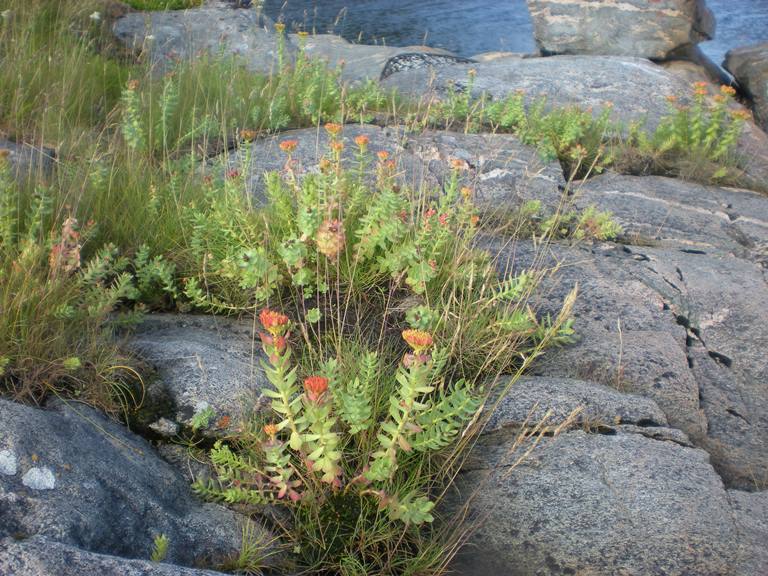Researchers working with Inuit elders to develop alternative medicine business
The roseroot plant (Rhodiola rosea L.) is considered by some alternative medicine supporters to be a treatment for fatigue, memory and mild depression and anxiety and is available for purchase as close as your local grocery store.
With the support of the Harris Centre and ArcticNet, Dr. Luise Hermanutz, a professor of biology at Memorial, and Dr. Alain  Cuerrier, an ethnobotanist with the Montreal Botanical Garden, along with PhD student Vanessa Mardones, have been studying the ethnobotany and biology of this globally important medicinal plant found along Labrador’s coast.
Cuerrier, an ethnobotanist with the Montreal Botanical Garden, along with PhD student Vanessa Mardones, have been studying the ethnobotany and biology of this globally important medicinal plant found along Labrador’s coast.
“When we met with the elders and discussed a partnership with the Nunatsiavut Government, they had no idea this was a huge global industry,” said Dr. Hermanutz. “Most of the roseroot grown in Canada is grown in Alberta and originates from Russian populations, which differs from the Labrador populations. So we need to do some comparisons to see how these plants differ.”
The team has been collecting wild plants from different types of habitats, such as rocky and sandy areas around Nain and Rigolet, to compare growth and medicinal properties, in collaboration with Dr. John T. Arnason, a natural products phytochemist at the University of Ottawa. They have established common gardens in the communities with the wild plants they’ve collected to compare how well they grow in cultivation.
“Roseroot from Labrador had never been tested for its active medicinal ingredients,” said Dr. Hermanutz. “We've been collecting plants to compare growth, robustness and chemical profiles so we can figure out which plants would be best to grow in community gardens, in hopes of developing a small business plan to market this valuable medicinal plant.
“By finding appropriate cultivars, the plants won’t have to be wild harvested. To get the rhizomes -- the underground stem -- which is where the active ingredients are, you have to kill the plant.”
Dr. Hermanutz and her team hope their work with the communities will encourage a sustainable industry. Based on discussions, round tables and interviews, the Inuit of Nunatsiavut strongly support the project’s goals, and have given it two thumbs up.
“We hope together to provide a business opportunity that combines the best of sustainable fair trade production practices.”